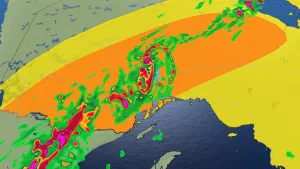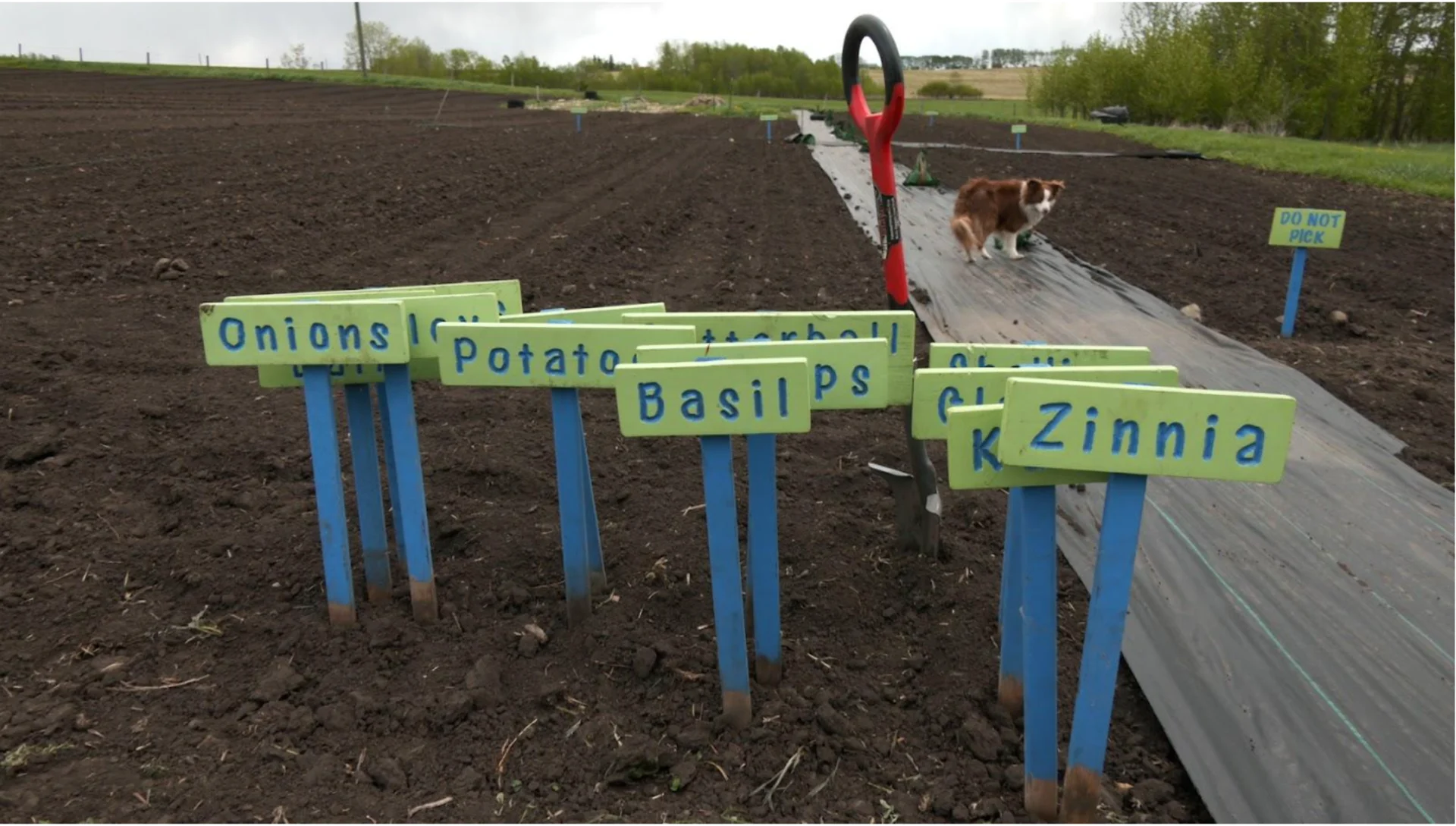
Why some Canadians are skipping grocery stores and 'subscribing' to local farms
This grocery store alternative offers produce from local farmers
Do rising prices at the till, limited competition, or community boycotts have you searching for alternatives to the major grocery stores?
Or maybe you have concerns around supply chain transparency or the taste and freshness of the food you find in the store aisle.
Have you ever thought about “subscribing” to a local farm to receive a portion of its bounty in return?
Community Supported Agriculture (CSA) is a food supply model that connects consumers with the farms on which their food is grown.
RELATED: Fruits and veggies going bad? Tips to maximize the lifespan of your produce
In return for purchasing a subscription, or a share, of a local farm, the consumer receives a periodic package of in-season, locally grown food, which can usually be picked up or delivered depending on the farm.
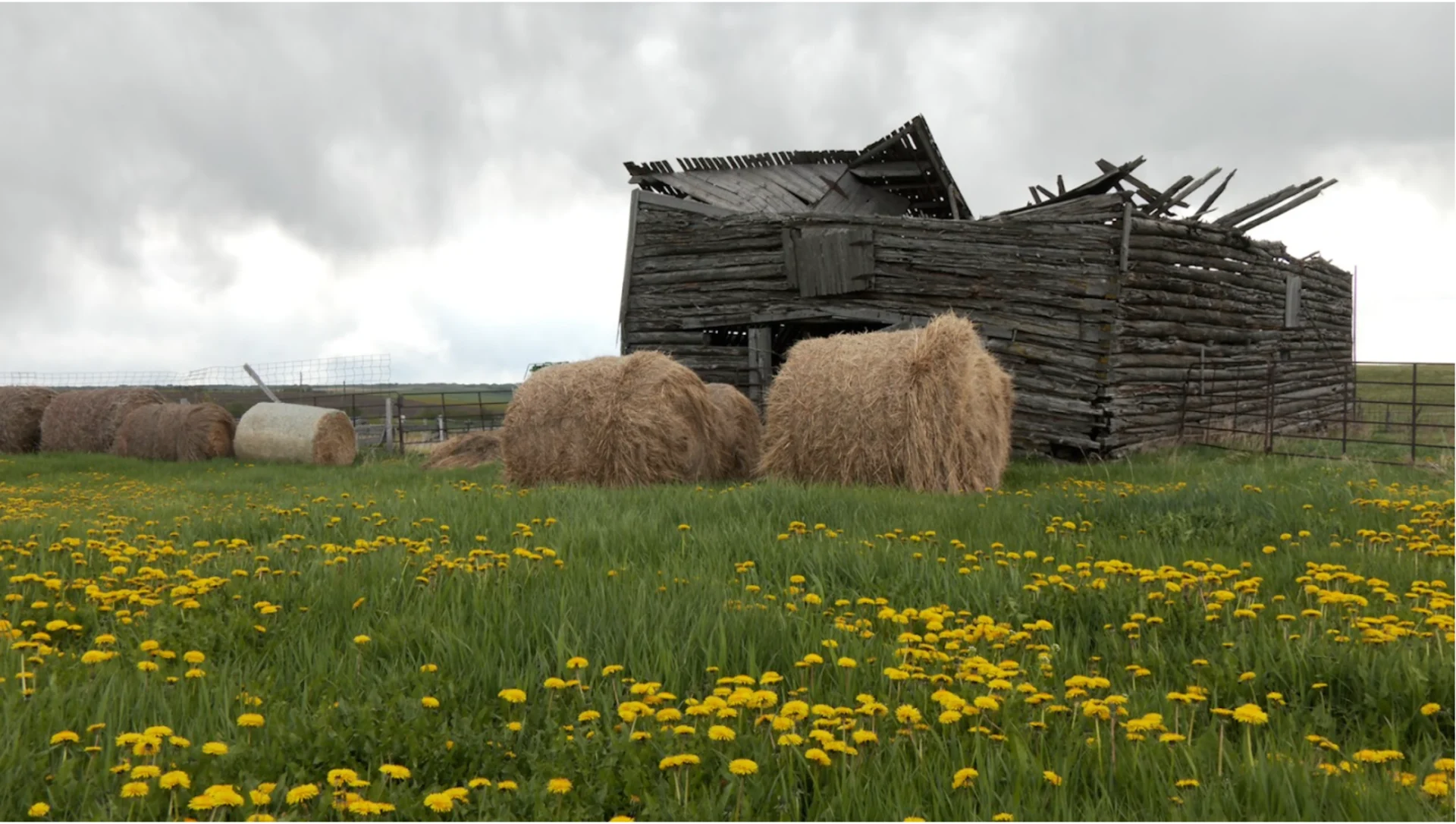
The Summit Hill Farms CSA occupies a small portion of a larger, multi-generation farm north of Cochrane, Alberta. (Connor O’Donovan/The Weather Network)
CSA owners like Alberta Telfer, who runs Summit Hill Farms north of Cochrane, Alta., say the model offers several benefits to the consumer, including transparency, longer shelf life, and better taste, as well as a more intimate connection to the place your food comes from.
It also helps fund the operation of small farms like hers, which grow more than 25 vegetables, including lettuce, onions, carrots, potatoes, peas, beans, and more.
SEE ALSO: How you can eat healthy without breaking the bank
She says she has space on her farm to grow for up to 75 families looking to get a new supply of fresh vegetables every couple of weeks for up to four months a year.
“People will buy a share of our farm at the beginning of the growing season, really investing in us and sharing the risks of inclement weather and pests and disease in the garden, and then we share the bounty of our garden with our clients every couple of weeks from July through October,” says Telfer, who farms using organic methods.
As for why her customers subscribe, Telfer says, “I think they love the connection to the land, to us as farmers, and the flavour of the food. When you harvest something straight out of the garden, there’s no deterioration in the quality of the product. Our stuff will last a month or longer in your fridge. Two weeks is pretty average for most grocery store foods.”
She adds that she thinks her clients gain an education and an appreciation for how much work goes into food production. Some even volunteer to visit her farm and get their own hands dirty. Telfer thinks a stronger, more educated connection between people and the food they eat can lead to less food waste.
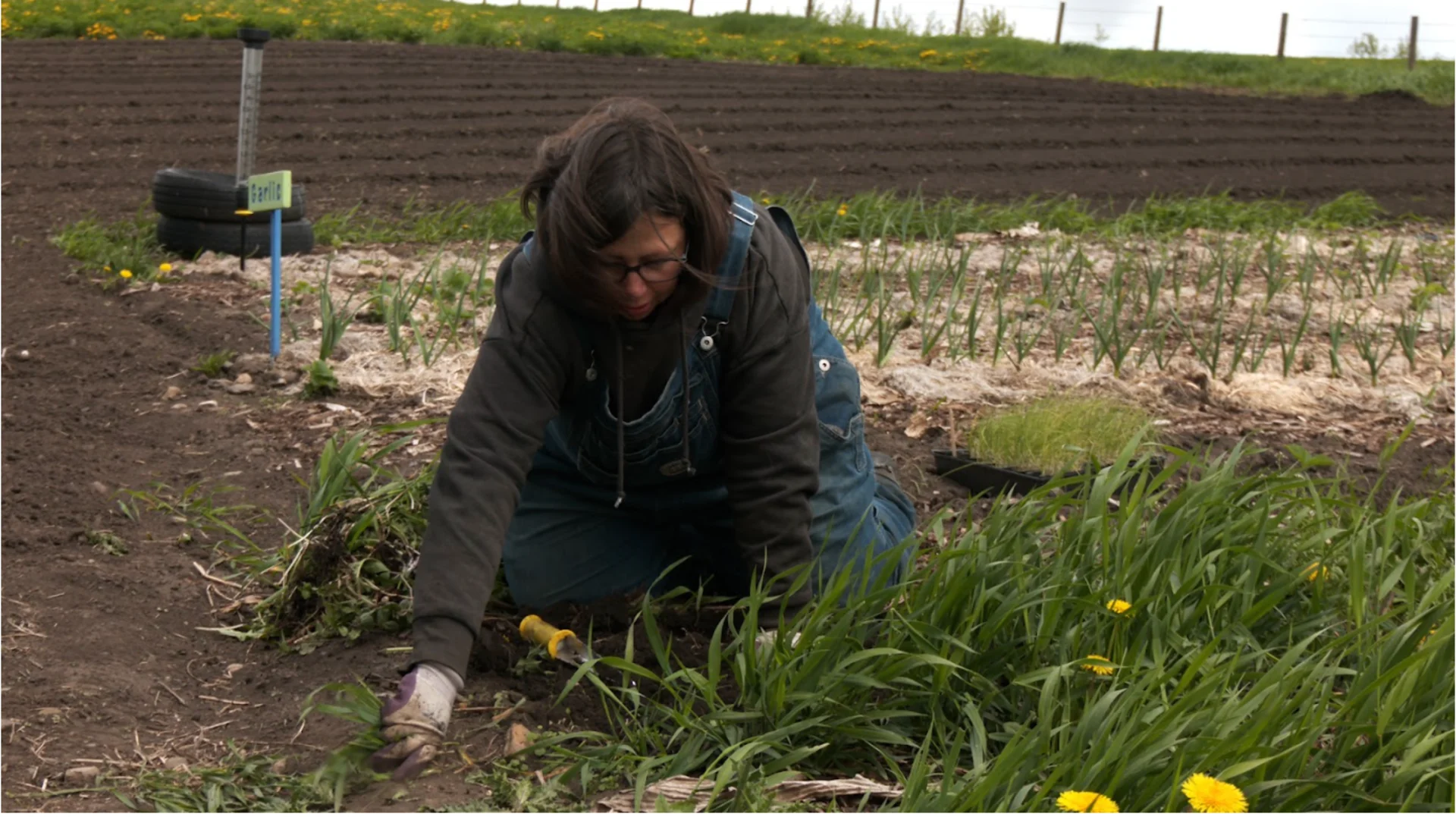
Alberta Telfer invites customers out to her farm so they can get their hands dirty themselves to help “deepen their knowledge of their food and where it comes from” and explore how vegetables grown locally might taste different from imports. (Connor O’Donovan/The Weather Network)
DON'T MISS: Olive oil is how much now? Prices jump — again — amid shortage, bad weather
And, on top of those benefits, she believes her prices are becoming more competitive with grocery stores as well.
“We ballpark it that our root vegetables are worth five dollars a pound and our leafy greens a dollar a pound. That’s pretty comparable to the grocery store today.”
Of course, the prices and contents of the packages will depend on the CSA and will be influenced by what can grow well at the farm’s location, what’s in season, and the length of the subscription.And, as mentioned, there is inherent risk in the model as the farm’s bounty can fluctuate depending on many factors, including the growing season’s weather. A hot year can mean bigger pumpkins and corn, while severe hail storms can shred leafy greens (Telfer says the crops do bounce back quickly).
Still, the model does present an option to fill at least a portion of your fridge and shelves from outside of the big grocery chain stores, if that’s something you’re motivated to do.
So, are you interested in learning more and locating a CSA near you?
As Telfer notes, “a lot of people don’t even know they exist.”
But some are building platforms that could increase CSA awareness and exposure.
The non-profit Open Food Network (OFN) is an international organization that, according to the Executive Director of its Canadian branch, “develops software to support the growth of short supply chains for local food and farm products.”
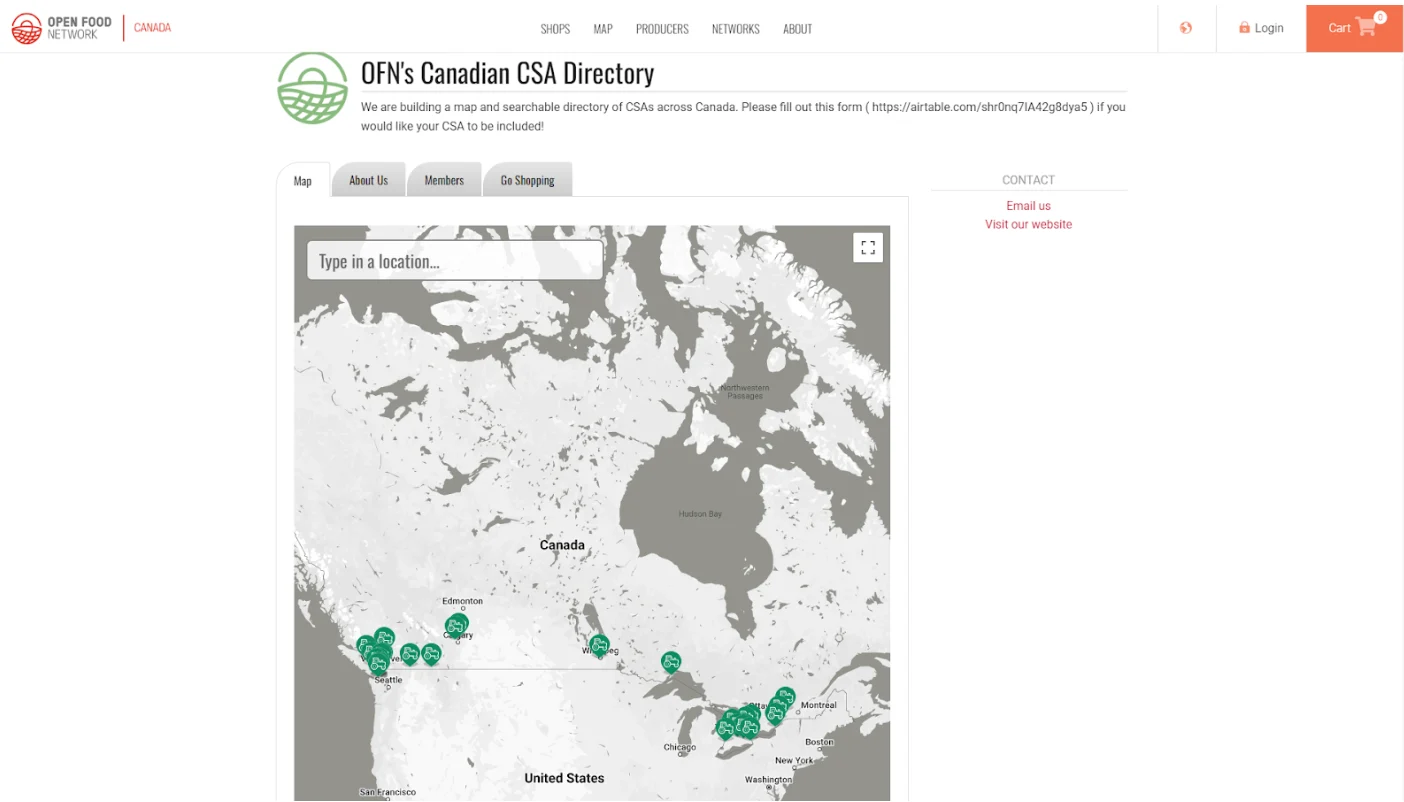
(Source: Open Food Network)
SEE ALSO: Cost of avocados rises 129 percent year-over-year
Among its initiatives is an e-commerce platform on which vendors can sell their own and other farms’ products and on which consumers can find and access products sold by local producers.
An online map gives users access to the locations and online stores of dozens of CSAs across the country.
Among its initiatives is an e-commerce platform on which vendors can sell their own and other farms’ products and on which consumers can find and access products sold by local producers.
An online map gives users access to the locations and online stores of dozens of CSAs across the country.
“Consumers can log on at their local store, find a list of different vendors, aggregate those products into a basket, check out, and then the platform helps to coordinate the just-in-time delivery of those goods to pick-up points,” OFN Canada Executive Director David Thomas says.
“We have a focus on food and farming sovereignty, so more autonomy, agency, and control for local communities over how they source and control their food.”
Alberta Open Farm Days also has a list of Alberta-based CSAs available online.









